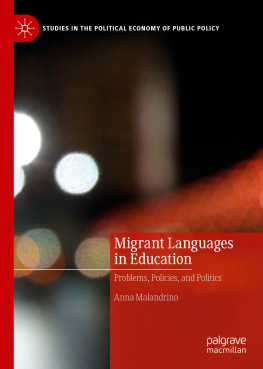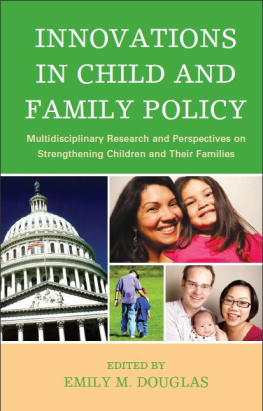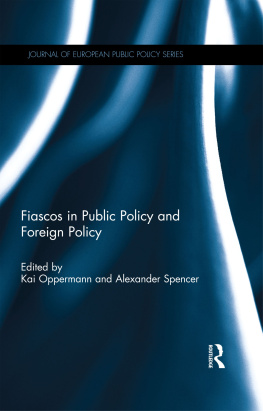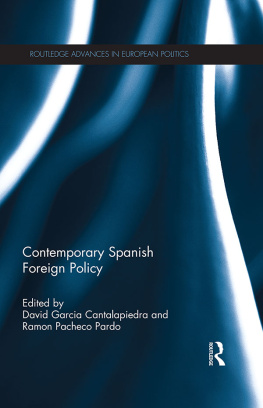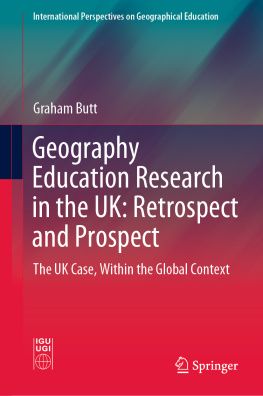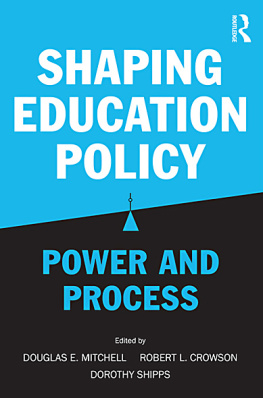Contents
Guide
Pagebreaks of the print version
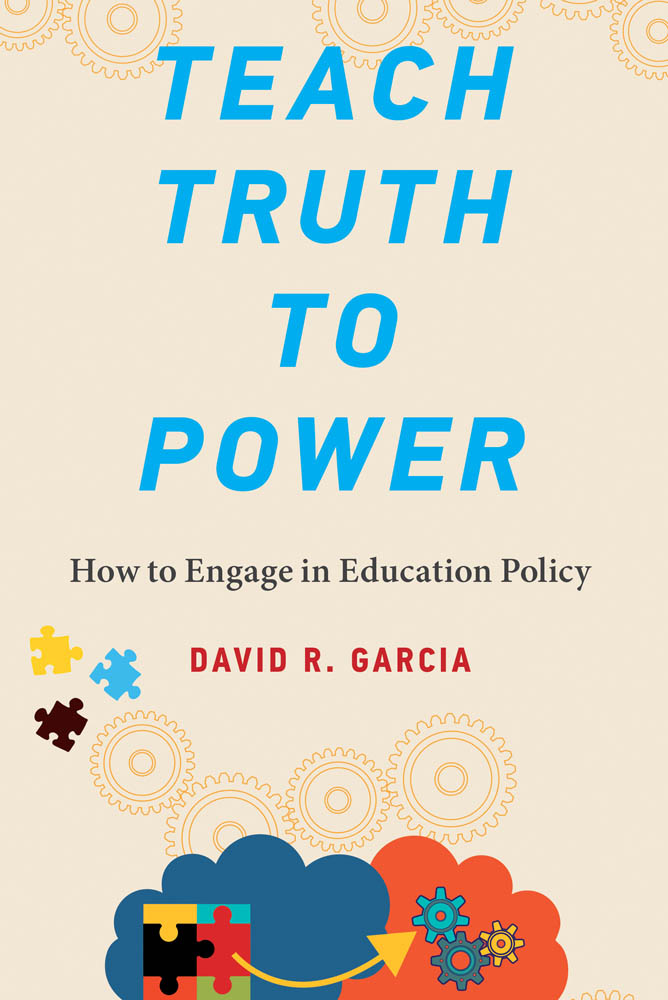
TEACH TRUTH TO POWER

HOW TO ENGAGE IN EDUCATION POLICY
DAVID R. GARCIA
THE MIT PRESSCAMBRIDGE, MASSACHUSETTSLONDON, ENGLAND
2021 Massachusetts Institute of Technology
All rights reserved. No part of this book may be reproduced in any form by any electronic or mechanical means (including photocopying, recording, or information storage and retrieval) without permission in writing from the publisher.
The MIT Press would like to thank the anonymous peer reviewers who provided comments on drafts of this book. The generous work of academic experts is essential for establishing the authority and quality of our publications. We acknowledge with gratitude the contributions of these otherwise uncredited readers.
ISBN: 978-0-262-54322-4
d_r0
To Lori, Lola, y Olivia
CONTENTS
List of Illustrations
List of Tables
ACKNOWLEDGMENTS
Thank you to my students over the years who trusted in me as I developed and tested the lessons for the book in my course on Translating Research for Educational Change at Arizona State University. Thanks, Anabel for being my Zuko. Dick Foreman, I listened and learned from your insight along with my students during the class discussions. Ian Danley, thank you for inspiring me to take the political journey that brings a unique perspective to my scholarship. Alex Molnar, I appreciate your guidance on how to be a public scholar. Kris Gutierrez, thank you for providing me a space at the American Educational Research Association (AERA) annual conference years ago to seed these ideas. I am also grateful to have received a National Education Association/Spencer Post-Doctoral Fellowship and for the national experiences that reinforced for me the importance of research utilization. Emily Ackman and Stacey Long-Genovese for their early work on this topic. I appreciate the feedback from Gustavo Fischman, Keon McGuire, and George Diaz. And always, Lori.
SETTING THE CONTEXT
Aaron Wildavsky wrote Speaking Truth to Power: The Art and Craft of Policy Analysis in 1979over thirty-five years before this book was written. It is not only an inspirational title; it remains the oft-cited rallying cry of academics searching for a higher purpose for their scholarship. Yet, if one reviews the state of affairs on research utilization in education policy, it becomes clear that the books insightful lessons and productive orientation toward the role of evidence in policymaking remain largely unfulfilled. Academics may be speaking truth to power, but few are listening.
Why? Because Wildavskys perspective on policy analysis is applicable to those who have access to the policy process, but very few academics have such access. It is most applicable when you are at the table or within earshot, close enough to policymakers so that there is a chance that someone in power will listen. Wildavskys book describes how to make the most of the opportunity to speak truth to poweronce you get in the room.
Academics, however, are not in the room. They stand on the outside of the policy processby design. Education research and education policy happen in very different places and are undertaken by very different actors. Being on the outside is not the same as being on the margins, though. Academics and academic research are, or at least should be, necessary parts of the policymaking process. Academics can be extremely influential as outsiders who engage in education policyif they shift their perspectives and learn how to function best from that position, outside the legislative process, in what is a highly productive and influential space.
To learn to engage in education policy effectively, academics and researchers must shift the way we think about the nexus of research, policy, and politics. Like other professional staff who work with politicians from inside government and legislative circles, Wildaviskys insights are largely applicable to those tasked with carrying out policy, but whose ability to influence policy creation is constrained (chapter 2). Academics and researchers, on the other hand, can provide the frameworks to help set education policy when research has been conducted with an eye to the future, it is brought into the policy process with an awareness of the pressures facing politicians, and it is translated to a policy context (chapter 6).
Teach Truth to Power: How to Engage in Education Policy is written for academics and researchers who are ready to engage in the policy process to influence education policy. You have research that you believe is important. You believe that your research should be heard by policymakers and that it should be considered in making future education policy decisions. You may have conducted original research, or you may have conducted a literature review to inform a policy change that you believe is important. Now, you are ready to speak truth to power and want to learn how to engage in policy most effectively.
You may be under the impression that your research is either of high quality, politically neutral, or so compelling that it can transcend politics. You think that if it can only it could get a fair hearing, both sides will certainly agree with your evidence. In your mind, the quality of your research is beyond reproach. You are convinced that your research is important and can make a difference (hopefully for the better) for the communities that you value. At the end of this book, you will be politically astute enough to know that your research, regardless of its merits, enters a policy context where the political lines have been drawn before you walked in the door. But when you walk in the door, where many voices and other ways of knowing also clamor for attention from busy politicians in a pressure-packed environment (chapter 5), you will be armed with a strategy to translate your research to a policy context so that politicians can take action.
Here, I begin our departure from much of the existing literature on research utilization. First, there is no causal relationship or generalized theory of either the policymaking process or research utilization that you can follow methodically. Engaging in education policy is not a scienceit is a craft. It is a combination of acquired knowledge and intuition, and similar to learning other crafts, it can be practiced and learned. This book will guide you in developing a strategy to hone your craft to engage effectively in your local policy context.
Second, engaging in education policy is an interpersonal process that cannot be accomplished from the safe confines of your educational setting, even in the social media era (Goodwin 2013). Engaging in education policy means getting face to face with politicians. Yes, politicians. This is an uneasy proposition for many academics who want their research to speak for itself without direct political engagement. As Weiss (1977, 531) astutely observed about academics, They want their work to be so cogent and intellectually compelling that it cannot fail to affect the outcome of policy. Herein lies much of the lure of the policy research enterprise. But hereto arise many of its frustrations. Rest assured, however, as academics we do not have to compromise our strengths, lose the objectivity of our research, or get political to be heard.



